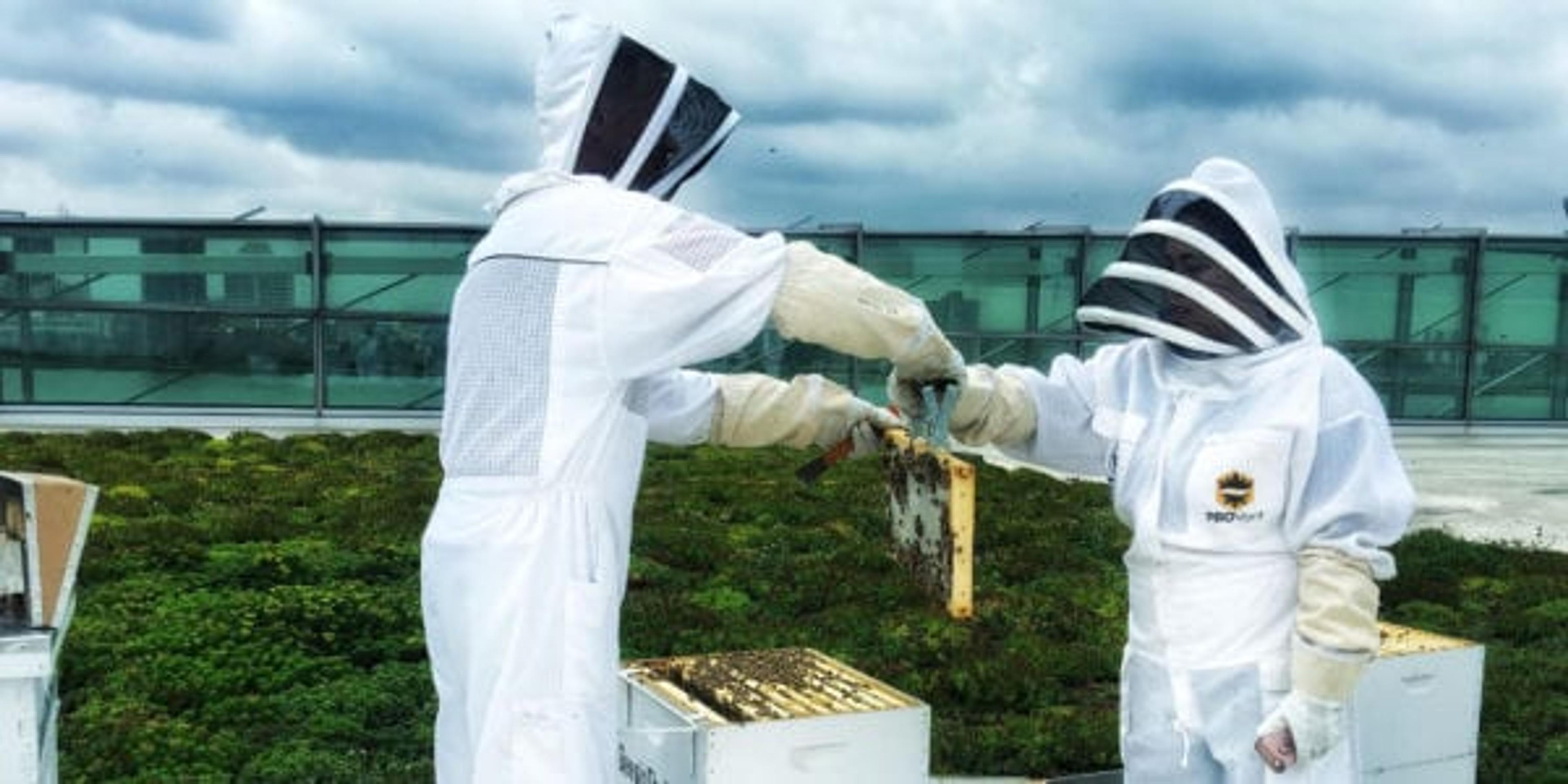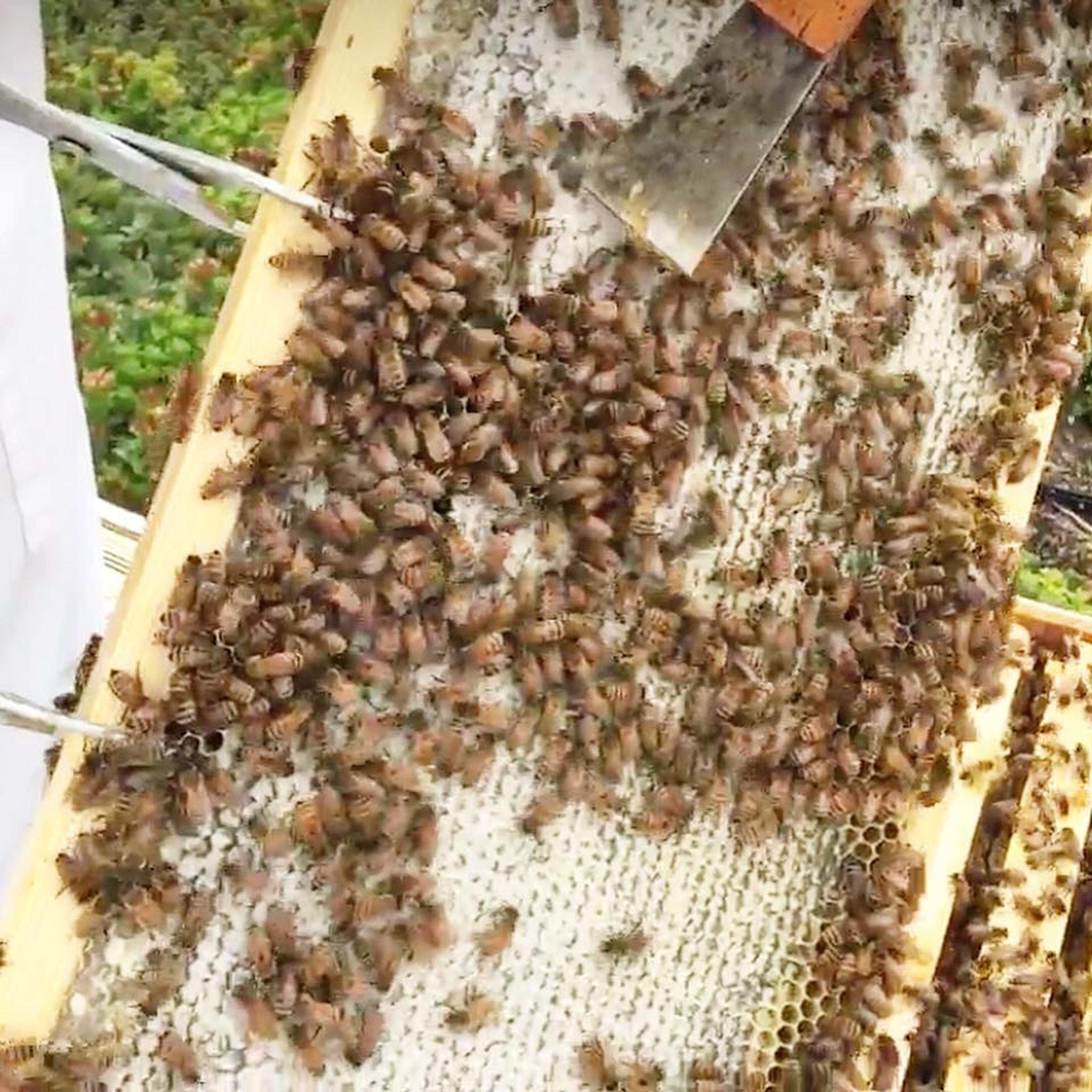Bees in the D: Increasing Urban Honeybee Hives

Julie Bitely
| 3 min read

The buzz about honeybees in Detroit and southeast Michigan? Make yourselves at home on rooftops, vacant lots and urban farms.
Non-profit organization Bees in the D has made it their mission to increase the population of honeybees in the region and their efforts are working. In two years, the group has introduced more than six million bees to southeast Michigan.
Starting with four hives in 2016, there are now 102 hives in 35 locations, including the Outdoor Adventure Center, Eastern Market Brewing Company, GM, Chrysler, Cobo Green, Henry Ford Health System and many more.

Blue Cross Blue Shield of Michigan registered dietitian Grace Derocha recently had a chance to talk to Brian Peterson-Roest, one of Bees in the D’s founders, during an Ask the Dietitian Facebook Live chat. He said the group’s mission is to educate on the importance of pollinators and the conservation of the honeybee while building a network of urban honeybee hives throughout southeast Michigan.
“We love to educate people about the bees and their importance,” Peterson-Roest said.
Join us LIVE for Ask the Dietitian with Bees In The D on the Cobo Center roof. Ask your questions for Grace and Brian about honey bees, honey and sustainability below.
Posted by A Healthier Michigan on Friday, August 17, 2018
Here are some facts about bees and raising them that he shared:
• Only female bees serve as worker bees in a hive.
• Queen bees are developed by worker bees, who select larvae to be fed royal jelly. These well-nourished larvae emerge as new queen bees.
• About 60,000 bees live in each hive.
• There are 450 different bee species who call Michigan home. Nationwide, there are 4,000 different types of bees and 20,000 species worldwide.
• Honeybees typically want nothing to do with humans. If a “bee” is buzzing around you, it might be a type of wasp or hornet.
• Only female bees serve as worker bees in a hive.
• Queen bees are developed by worker bees, who select larvae to be fed royal jelly. These well-nourished larvae emerge as new queen bees.
• About 60,000 bees live in each hive.
• There are 450 different bee species who call Michigan home. Nationwide, there are 4,000 different types of bees and 20,000 species worldwide.
• Honeybees typically want nothing to do with humans. If a “bee” is buzzing around you, it might be a type of wasp or hornet.
Without honeybees to pollinate plants, they’re harder to grow. Peterson-Roest explained that if you enjoy fruits, vegetables or nuts, honeybees and other pollinators are your friends. Even if you mostly enjoy eating meat, plants are vital feed for pigs, cows and chickens.
“If we didn’t have pollinators like the honeybees, we would have a lot less to eat,” Peterson-Roest said.
To support bees in your backyard, he said you can contact Bees in the D to host a hive or provide water and food sources for bees. He recommends a small, shallow bowl of water with colored marbles in it to give bees a place to drink and planting brightly-colored plants and flowers to feed them.
Bees in the D hosts workshops, classes and events so people can learn more about honeybees and the honey-harvesting process. Learn more at their website and check out the Ask the Dietitian Facebook Live video to learn more about the process and get a glimpse at the hives on top of the Cobo Center.
If you don’t live near southeast Michigan, Peterson-Roest recommends checking out the Michigan Beekeepers’ Association for beekeeping events and information near you.
Like this post? Check these out:
Photo credit: A Healthier Michigan





